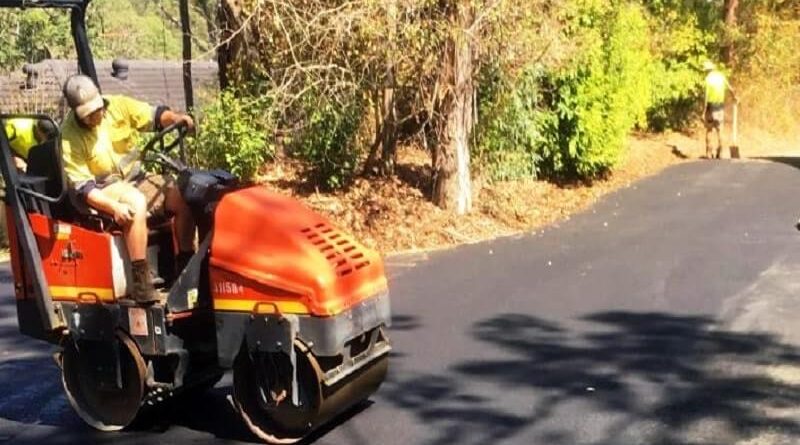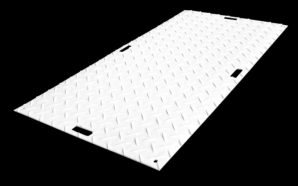When considering laying asphalt for your driveway, you need to know how long it takes to dry, so you know when it is safe to drive over. You also need to know the best weather to pave your driveway and what the difference is between the asphalt cure time and the asphalt dry time so you can save your tires from being damaged. To really understand the original question, you need to understand the whole process, and how each plays a part in how the asphalt dries and cures.
1. Weather
Did you know that the drying process of asphalt can be extended in both hot and cold weather? Experts recommend a dry day that has low humidity and high wind levels are the perfect conditions to pave your driveway. If it is high humidity weather the asphalt will be soft, so it is more difficult to dry.
Your new driveway will need time to cool down, and while you can use water to cool it down, it is strongly suggested to not lay asphalt in extreme weather conditions. It is recommended to avoid any asphalt works if the temperature is above 38 degrees celsius.
Unfortunately, winter is another weather condition that you will need to avoid to get your driveway laid. This is because in winter the asphalt gets too hard before you even get to finish it. You can do minor repair work if necessary, but it is not recommended.
Any driveway work or even any asphalt repairs is recommended to completely avoid when it is raining because the rain will make the asphalt dry too slowly, and will cause damage to the freshly pitched asphalt. Spring or early summer is the best time to do your paving work on your driveway. The perfect condition is a day that is not too cold or too hot, and that has a decent breeze.
2. Curing process
The curing process mostly depends on the weather conditions. Here are some steps to make your new Brisbane asphalt driveway cure more effectively, harden, and become long-lasting. Here are some initial and ongoing tips to ensure longevity.
- Don’t walk, park or drive your car on the new driveway for at least five days after laying
- Don’t park at the same spot over and over again.
- Avoid placing sharp objects over it.
- Keep heavy vehicles away from the asphalt.
- Do not drive close to the edge of new asphalt.
- Make sure there is a proper drainage system.
3. The difference between curing and drying your new asphalt
Curing is entirely different from drying because curing is when the new asphalt fully hardens permanently, whereas drying refers to the new asphalt which has dried enough for small traffic to use. Asphalt will actually take 6 to 12 months for it to be fully cured, however, it really depends on the weather, the thickness, and the mix of ingredients. While the driveway is in this curing
process, the color of the asphalt turns black to gray, and the extremely heavy vehicles should fully avoid driving over it.
4. Sealing your asphalt driveway
To protect your asphalt from water, oils, and hot temperature, sealing (or seal coating) is used as a protective layer of coating to asphalt.
Sealing your driveway can be done every 1 to 3 years, depending on the condition of the asphalt, however, overuse of sealing too often can cause damage to the asphalt by actually peeling or cracking. If there are any cracks or potholes or any severe damage to the driveway you can consider re-sealing it. You cannot apply asphalt sealer immediately on your newly made driveway, because if you apply it too early, it could interrupt the process of oxidation and cause more oil into the mixture.
You will need to wait until the asphalt has been cured before sealing, but if you leave it for too long to seal your asphalt, it might lead to cracking. Something to keep in mind and be careful of when applying the asphalt sealer to your driveway or pavements. Generally, the asphalt sealer will dry within 4 to 8 hours, however, it needs to have dried for 12 hours in normal weather in order to be fully cured. In hot weather conditions, you will have to let the asphalt dry for almost 24 hours.
5. Cold asphalt patches for repairs
For repairs, to cover cracks and holes on driveways, you can use cold patches. Cold patches are great for repairing the existing asphalt surfaces and the driveway can be used immediately after the repair is done. Cold patches will take up to 12 to 36 hours to properly dry and almost 30 to 90 days to cure.
If you are using a cold patch on your driveway, firstly get rid of any loose asphalt and clean it with detergent and water. Then you pour the cold mix over the hole (about 4 cm above the surface), making sure it is covered fully. Using a towel, compress the mix and add some sand to it so it doesn’t get stuck. You will still have to wait a few weeks to cover it with a sealer.
It is crucial for you to have a full understanding and idea about the process of asphalting your driveway, and to know the differences between asphalt dry time and the cure time. The asphalt curing time basically will take a full year to be completely functional and it is totally up to you whether you will repair or build your driveway now or later. You do need to ensure you are doing it in the right way, time and weather. At Bitumen Constructions we offer a free quote and would love to help you plan your new driveway. Please reach out to Lloyd today.








